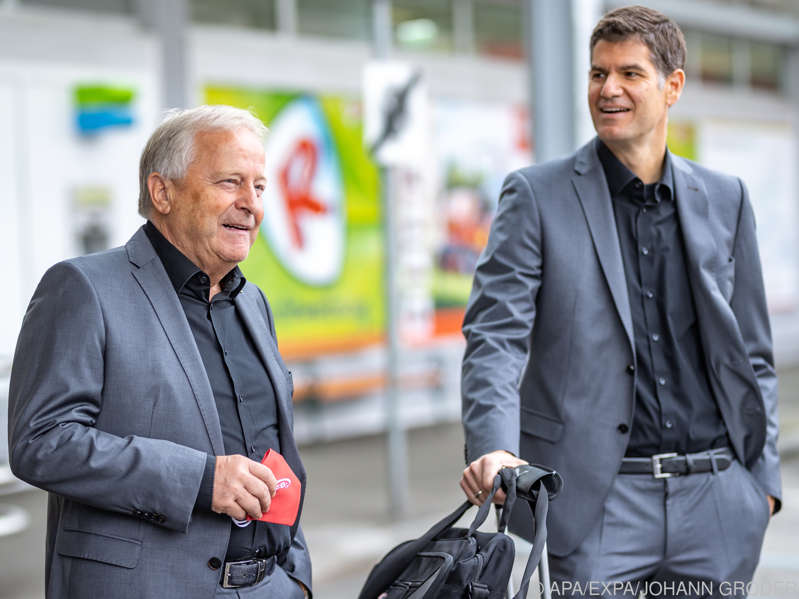
Neuhold (r.) Manages the ÖFB's 60 million euro budget
The UEFA premiums for the upcoming European Championship will increase the turnover of the Austrian Football Association (ÖFB) by around a quarter in the current financial year. Future projects of the association, such as the creation of a new training center in Vienna-Aspern, will not depend on sporting success at the tournament, according to ÖFB managing director Bernhard Neuhold. In the long term, however, this would also have positive effects on the finances of the largest domestic sports association.
As a result of the corona consequences, the ÖFB budget had shrunk from around 50 million euros in 2019 in the previous year to a little more than 45 million euros. According to Neuhold, a new record is forecast for 2021 at around EUR 60 million – also due to the EM premiums. Each participating country receives a guaranteed entry fee of 9.25 million euros from UEFA. Every win in the group stage brings another million, every draw a half. The promotion to the round of 16 will be rewarded with a further 1.5 million euros.
Neuhold emphasized that it was gross earnings. The additional costs for staff, travel, the EM quarters in Seefeld or the corona prevention measures would have to be deducted from this as well as the success bonuses for the players. As before the 2016 European Championships, a “performance-based model” had been agreed with the team council in partnership discussions, explained Neuhold of the APA – Austria Press Agency.
In addition, the regional associations and the Bundesliga participate in the European Championship cake via a distribution key. “With the ÖFB as a company, only a fraction remains,” said Neuhold. From group matches and the round of 16, this would be a low seven-figure amount. “A one-off effect would only be really exciting economically after the quarter-finals.” For this there is an additional 2.5 million euros from UEFA.
The corona measures for the national team cause additional costs in the six-digit range. In addition to the ongoing tests, more spacious hotel rooms for meetings, single rooms or the travel of the players in business class would have to be financed. “We are obliged to do all of this due to our strictly formulated internal prevention concepts,” explained Neuhold. At the ÖFB, positive cases have so far been avoided at all team meetings.
According to Neuhold, the EURO is “not an insanely profitable thing in the sense of a one-off effect” for the association's budget. However, sporting success would help with sponsorship and ticketing income in the medium and long term. The pandemic had recently made major cuts in these areas. At the end of 2020, the association – consolidated with the outsourced ÖFB Wirtschaftsbetriebe GmbH – was still in the black. “We got over 2020 comparatively well,” said Neuhold. “But 2021 will certainly be just as challenging for us.”
The effects of the corona pandemic will be felt for even longer. A strong EM performance by the national team would be all the more important as a signal for all domestic football, which should get going again in the second half of the year. Neuhold: “It would be motivating for everyone. The more successful we are, the bigger the cake – and the more the entire structure benefits.”
The association's training center, which is currently being planned, including its office, could be put on track independently in the next few weeks. The total costs should amount to around 50 million euros, the ÖFB would have to bring in around 20 million of its own funds. “Whether we implement a training center has nothing to do with how we did at the EURO,” emphasized Neuhold. The necessary decision of the executive committee for the project in Aspern is still pending.
For the time being, the association has its premises in the Ernst Happel Stadium. The extensive oval was only filled with 3,000 people due to the corona restrictions on (today) Sunday in the EM test against Slovakia. “Economically, that results in a deficit for us,” said Neuhold. But it is important to bring the spectators back to the national team. “We are happy to be able to give the fans a perspective again.”
On July 1st, the restrictions for major events will fall across Austria. At the World Cup qualifying home game against Scotland on September 7th, Neuhold is already hoping for a “worthy backdrop”. A successful EURO would probably also contribute to this.

